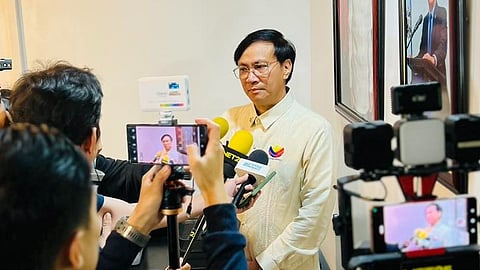
- NEWS
- the EDIT
- COMMENTARY
- BUSINESS
- LIFE
- SHOW
- ACTION
- GLOBAL GOALS
- SNAPS
- DYARYO TIRADA
- MORE

Unknown to many, thousands of students from elementary to Grade 12, who are children of overseas Filipino workers (OFWs), are currently studying in schools abroad, mainly in the Middle East. These schools, operated by Filipinos and regulated by the Philippine government, cater to these students.
Commission on Filipinos Overseas Chairperson Romulo “Leo” Arugay reported that approximately 30,000 Filipino students are enrolled in 32 overseas schools, particularly in Saudi Arabia, the United Arab Emirates, Bahrain, Greece and Italy.
“Philippine Schools Overseas are being established in various countries, with a focus on the Middle East due to the large OFW population there,” Arugay explained in an interview over the weekend. “Children are often brought there at a young age and enrolled in these Filipino-run schools.”
Arugay noted that while schools must be wholly Filipino-owned, some are partially foreign-owned but managed by Filipinos.
“These schools cannot be built without the Department of Education’s approval. They are accredited by DepEd and follow the same curriculum as in the Philippines,” he said.
Of the students enrolled, 60 percent are Filipino, while 40 percent are foreigners. “We prioritize OFW children,”Arugay emphasized, adding that the schools must also have approval from the host country.
After completing their elementary and secondary education, students are required to return to the Philippines for reintegration. This process helps them avoid adjustment or culture shock when transitioning to college, as they have been taught the DepEd curriculum.
The Philippine Schools Overseas are regulated by an inter-agency committee led by the Department of Education, Department of Foreign Affairs, Overseas Workers Welfare Administration, Department of Labor and Employment and the Commission on Filipinos Overseas, which acts as the secretariat. “We ensure that these schools comply with regulations,” Arugay concluded.
